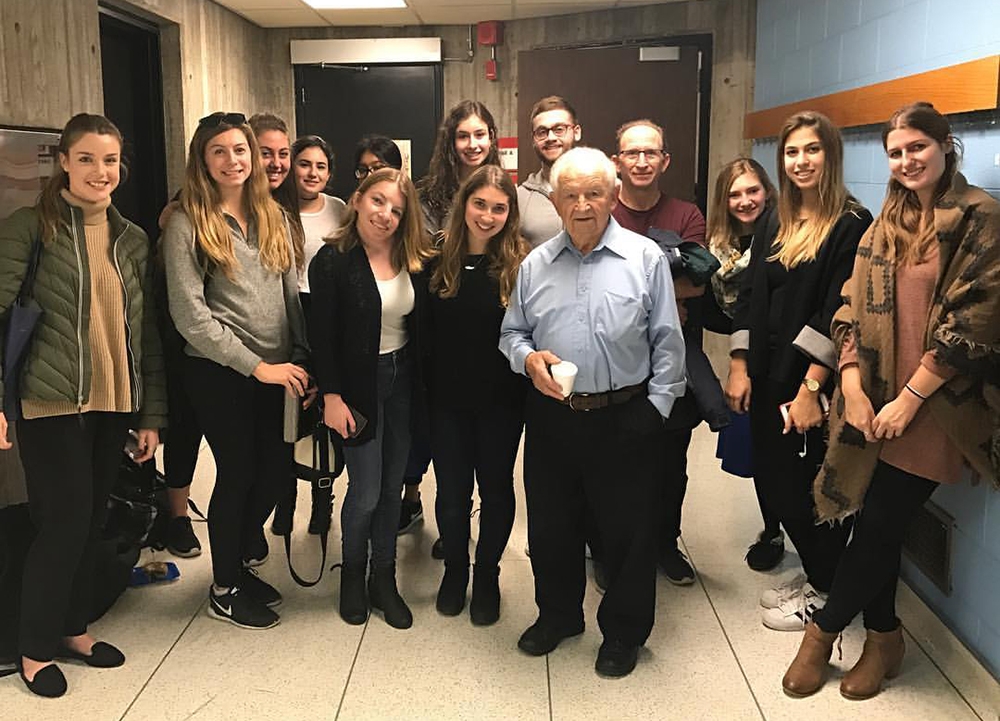Jonny Chard | Staff Writer
Featured image: Howard Chandler, fifth from the right, spoke to students on November 2 as part of the 36th annual Holocaust Education Week. | Courtesy of Hillel York
As part of Holocaust Education Week, Hillel York hosted a Holocaust survivor, Howard Chandler, who spoke to students about his experience in concentration camps throughout World War II, and how life changed as a Jew under Nazi occupation.
“When the war broke out, things changed […] drastically. When the German army marched into Poland […] Jews were singled out for special treatment,” he said.
Chandler’s neighbourhood was used as a Jewish ghetto, which brought on crowding, scarcity of food and lack of sanitation.
He underlined that they had no access to news, and so the only time they heard tales of Nazi treatment was when they encountered escapees.
“What was happening in other places was not very pleasant. People couldn’t believe the stories that they heard,” he stressed.
The 36th annual Holocaust Education Week, which ran from November 2 to 9, provided over 100 programs in the Greater Toronto Area that explored the theme of the “Future of Memory.”
It focused on how future generations will perpetuate personal survivor accounts and transform Holocaust education and remembrance in a changing technological landscape.
“It is very seldom that you see a Holocaust survivor my age. Very few people my age survived,” said Chandler.
As one of the estimated 10,000 living survivors of the Holocaust, Chandler recalls his separation from his mother, older sister and younger brother, whom he would never see again.
“My younger brother […] was the smartest in the family. I don’t know what would have become of him, what contribution he would have made to mankind,” he said.
Chandler was spared, along with his father and older brother, and was transferred to a labour camp in 1944, as he was considered suitable to work for the Germans.
He told how those who refused to work were shot, and, after many tried to escape, oppression was heightened. “If somebody was running away and was missing in the camp, they would take ten people as hostages and shoot them if you were not found within 24 hours,” he described.
In July 1944, Chandler was placed on a train to Auschwitz, where he bore witness to the mass killing of German-speaking gypsies.
“Prisoners in Auschwitz were worth as much as a mosquito in a summer camp,” he summarized.
Joelle Chandler, Howard Chandler’s granddaughter and Vice-President of 1st Year Council, emphasized that first-hand accounts of the Holocaust offer a personal connection that must be preserved.
“We are the last generation of students to hear first-hand personal testimonies from Holocaust survivors. It is our responsibility to listen and remember these stories and pass them on to future generations,” she stated.
“It is our collective responsibility to make ‘Never Again’ a reality.”


